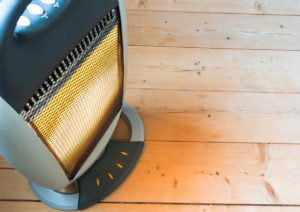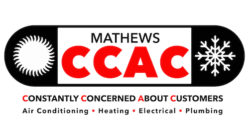
It’s tempting to use space heaters to warm an isolated area before you need to turn the furnace on. Some parts of your home may be cooler than others, like a north-facing room or a garage. Used properly, space heaters are safe, but caution dictates how they’re used.
Before purchasing or using your safety heaters for the first time this year, be sure that:
- The smoke and carbon (CO) detectors are working.
- You can use an electric space heater without an extension cord. An extension cord increases the risk of fire. If the cord isn’t rated high enough for the heater, it will overheat. Cords are also tripping hazards and it’s possible to accidentally touch the space heater, which could result in a burn. Both the extension and heater cords should be intact to avoid shock or burn injuries.
- The space heaters you’re considering, or already own, should have tip-over switches that turn the unit off immediately when they become off-balance. If you have a unit without such a switch, replace it.
- Check the space heaters you have that use propane, kerosene, or natural gas. They should vent to the outdoors for optimal safety. Unvented heaters are available, but they rely on an oxygen sensor to turn them off when the oxygen in the room is too low.
If you must use one of these heaters, do so for short periods and open a door or window slightly to pull in fresh air. Be sure you have a CO detector in the room, but at least 15 feet away from the heater.
Using a space heater will take the edge off cool temperatures and provide comfort as long as its used safely. For more information about home heating, contact CCAC, providing HVAC services for Coastal Bend homeowners.
Our goal is to help educate our customers in Corpus Christi, Texas about energy and home comfort issues (specific to HVAC systems). For more information about your HVAC system, download our free Home Comfort Guide or call us at 361-678-2495.












